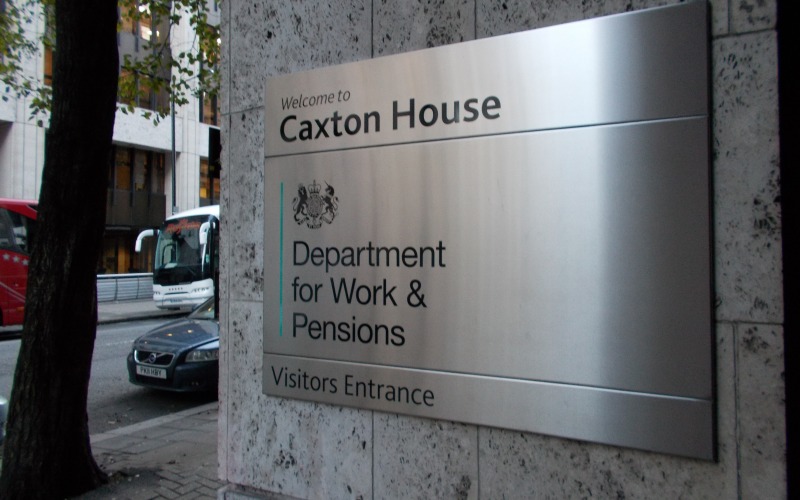Campaigners have asked why it took the government four years – and a tribunal judgement – to ensure that eligibility for a disability benefit takes proper account of whether a disabled person can carry out certain activities safely.
Penny Mordaunt, the minister for disabled people, told MPs this week that as many as 10,000 disabled people could end up receiving higher rates of personal independence payment (PIP) as a result of changes made to government guidance.
Those changes reflect a benefits tribunal decision in March that found that Department for Work and Pensions (DWP) guidance was wrongly reflecting the intention of the legislation that led to PIP’s introduction in 2013.
By 2022-23, an estimated 10,000 claimants are now likely to be receiving between £70 and £90 more per week, Mordaunt said.
The new version of DWP’s PIP guidance affects how DWP decides whether a claimant can carry out an activity safely, and if they need supervision to do so.
Mordaunt said the changes would most affect claimants with conditions that affect consciousness, particularly epilepsy.
She said DWP would now examine all existing PIP cases and “identify anyone who may be entitled to more”, and then write to those affected, backdating payments to the date of the change in case law.
Mordaunt also announced that DWP had made a number of changes to “add clarity” to guidance on how claimants with sensory impairments are assessed for PIP.
Disability Rights UK (DR UK) has now written to Mordaunt to welcome the decision not to dispute the tribunal decision, and to recognise its implications, and to trawl through PIP claims to see how many should be increased.
But Kamran Mallick, DR UK’s chief executive, also asked Mordaunt for details of the changes her department had made and how DWP will carry out the trawl of PIP claims, and to say whether disabled people who have been refused PIP or have lost eligibility for the benefit will also have their claims reviewed.
He also asked if DWP will be asking claimants to submit evidence to show they cannot carry out an activity safely, and how far back any increase in PIP awards will be backdated.
Ken Butler, DR UK’s welfare rights adviser, said: “DWP action aimed at ensuring disabled people are receiving their correct PIP entitlement must be welcomed.
“But it is disgraceful that after four years of PIP being in operation it has taken a legal judgment for the DWP to properly assess disabled people’s safety.”
He said DWP had refused, when designing PIP, to allow it to be paid to disabled people who need “constant supervision” to avoid placing themselves in substantial danger, as had been allowed under the benefit it is replacing for working-age claimants, disability living allowance.
Butler said this meant that many disabled people, many of whom have epilepsy, had not moved successfully from DLA to PIP, or had been awarded a lower rate of benefit.
He said it was now “essential” that DWP confirms “how it will ensure that all current PIP claimants will properly have their PIP uprated” and “that it will consider if claims from those previously refused PIP had their claims wrongly decided”.
Other social security experts called for DWP’s decision to benefit not just claimants with epilepsy, but also those with impairments such as learning difficulties, dementia, heart conditions or mental distress.
The Benefits and Work advice website mirrored many of the concerns raised in DR UK’s letter and said it had taken DWP “a shameful seven months to update their guidance” after the tribunal ruling.
Benefits and Work said it feared that many claimants who should now be entitled to PIP would still miss out from DWP’s trawl of claimants, particularly those who previously received no award at all.
It warned that “few claimants would trust the DWP to identify all those who should receive a higher award and [so] it would definitely be worth getting advice if you believe your case should be looked at again, especially as the DWP seem to be focussing almost exclusively on claimants with epilepsy”.
Philip Lee, chief executive of the charity Epilepsy Action, said: “We are delighted to see the government is starting to recognise the complex needs of people with epilepsy.
“Many people with the condition could have a seizure at any time, often without warning.
“The daily risk to people’s safety needs to be taken into account.
“We know the current system is not working and is failing people with epilepsy. They are more likely to be refused PIP than those with any other health condition.”
But Epilepsy Action said there were “still a lot of questions to be answered about how these changes are going to work in reality” and there was “still more to be done to improve the PIP system to make sure people who need this extra support receive it”.

 ‘Dangerous’ rollout of universal credit ‘poses threat’ to disabled claimants
‘Dangerous’ rollout of universal credit ‘poses threat’ to disabled claimants Reforms to disabled students’ support ‘will confuse and dilute our rights’
Reforms to disabled students’ support ‘will confuse and dilute our rights’ Letter from DPOs accuses care cuts council of ‘inhumane’ policies
Letter from DPOs accuses care cuts council of ‘inhumane’ policies